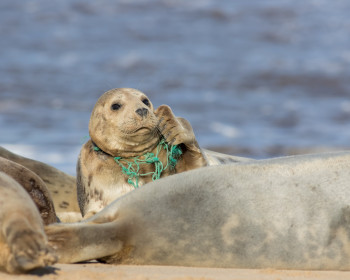Pakistan is Taking Animal Law Seriously
Open gallery

The Lahore University of Management Sciences (LUMS) is offering Pakistan’s first-ever animal law course during the Spring 2022 semester. CALS alumna, Hira Jaleel, will teach the course, titled “Animal Law”. Jaleel graduated from the Animal Law LLM class of 2020, and she is also a CALS Global Ambassador for the year 2021-2022. The course is being offered as a 4-credit elective to law students enrolled in the BA-LL.B. (Hons) program at LUMS.
Designed as an introductory course, the course is aimed at providing students an overview to the field of animal law. The course will touch upon the various ways in which the law governs the usage of animals, including legislation surrounding companion animals, animals used in research, wild animals and farmed animals. The course will also cover international treaties that relate to animals, such as the Convention on the International Trade in Endangered Species of Wild Flora and Fauna (CITES).
The treatment of animals under Pakistani law will be a keen course focus. Along with examining existing domestic legislation, students will explore animal law developments that took place in Pakistan during and in the aftermath of the groundbreaking judgment by the Islamabad High Court in the case of Kaavan the elephant. Since Pakistan is constitutionally an Islamic Republic, multiple sessions are dedicated to the treatment of animals in Islam and how an Islamic legislative framework can be used to further advance the interests of animals.

In recent years, an increase in the number of reported cases of animal cruelty have sparked and kept alive the debate around animal protection in Pakistan. Pressure by citizens on this front, coupled by litigation to enforce the statutory rights of animals, has led to greater protection of the interests of some animals, such as Kaavan. Of the opportunity to teach the course, Jaleel says: “I’m honored to introduce the field of animal law to the classroom through this first-ever animal law course in Pakistan, and hopefully encourage students to explore and advance legal avenues for animal protection in Pakistan.”
Indeed, the introduction of the first of its kind course dedicated exclusively to animal law in Pakistan has great potential to encourage future generations of lawyers to use their skills in the furtherance of the cause of nonhuman animals, and follow in Jaleel’s footsteps.

The Center for Animal Law Studies (CALS) was founded in 2008 with a mission to educate the next generation of animal law attorneys and advance animal protection through the law. With vision and bold risk-taking, CALS has since developed into a world-renowned animal law epicenter, with the most comprehensive animal law curriculum offered anywhere. In addition, CALS is the only program that offers an advanced legal degree in animal law, now offered both in-person and online, and three specialty animal law clinics. CALS is a nonprofit organization and is only able to provide these educational opportunities through donations and grants.
More Center for Animal Law Studies Stories
Center for Animal Law Studies is located in Wood Hall on the Law Campus.
MSC: 51
email cals@lclark.edu
voice 503-768-6960
Center for Animal Law Studies
Lewis & Clark Law School
10101 S. Terwilliger Boulevard MSC 51
Portland OR 97219

